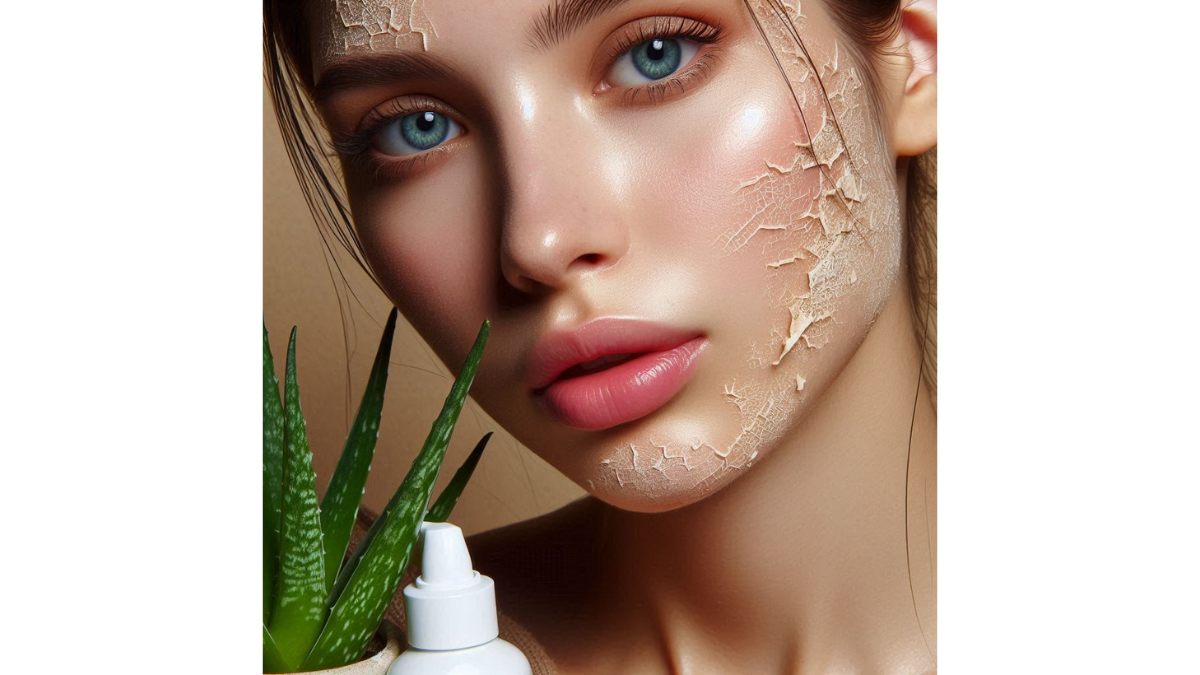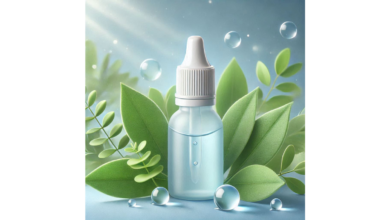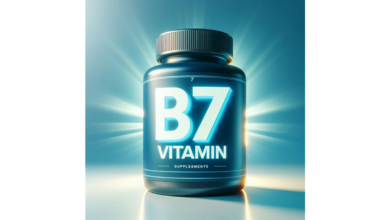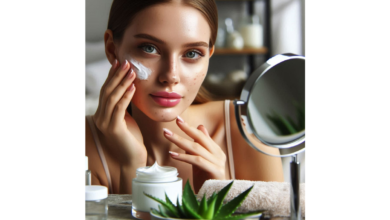Dry skin after shower

Dry skin after shower – For many, stepping out of the shower is often a revitalizing experience that signals the beginning of a fresh day. Yet, if you’re one of the millions who experience dry skin after shower, you’re likely left feeling less than rejuvenated. Instead of feeling silky and smooth, your skin might feel tight, itchy, or even flaky. Understanding what’s causing this uncomfortable sensation is crucial in regaining your skin’s natural moisture and balance.
What Causes Dry Skin After Shower?
Several factors can contribute to that parched feeling you may notice right after your shower. Here are some of the primary culprits:
- Hot Water Exposure: While hot showers can feel luxurious, they often strip your skin of its natural oils. The temperature can lead to the breakdown of lipids in the skin, which are essential for keeping your skin barrier intact.
- Harsh Soaps and Cleansers: Many commercial soaps and body washes contain sulfates and other detergents that can be harsh on the skin. They effectively clean but may also eliminate beneficial oils, leading to dryness.
- Environment: Low humidity levels, especially during winter months, can exacerbate dry skin. If you’re living in a climate with dry air, your skin might be reacting accordingly.
- Skin Condition: Certain underlying skin issues, such as eczema or psoriasis, can be triggered or worsened by shower routines. If you notice persistent dryness, it might be time to consult a dermatologist.
- Length of Shower: Spending too much time in the shower can be counterproductive. Extended exposure to water can be dehydrating, particularly if the water is hot.
You might relate to the experience of jumping into a rejuvenating shower, only to step out and feel that immediate discomfort creeping in as the water evaporates off your skin. It’s important to recognize that your post-shower routine plays a vital role in how your skin feels.
Importance of Addressing Dry Skin
You might wonder why it’s essential to tackle dry skin after shower rather than brushing it off as a minor annoyance. The reality is that neglecting to care for your dry skin can lead to more severe consequences over time. Here’s why you should consider addressing this issue:
- Comfort and Quality of Life: Dry skin can lead to discomfort, itching, or even cracking, affecting your overall well-being. Not only does dull skin detract from your confidence, but persistent itch can also lead to continuous scratching, creating a vicious cycle.
- Skin Barrier Function: The skin acts as the body’s primary barrier against bacteria and environmental factors. When the skin is dry and compromised, it becomes more permeable and vulnerable to infections, reducing its protective capability.
- Age and Dermal Health: As we age, our skin produces less oil. Ignoring dry skin can speed up the appearance of premature aging signs such as fine lines and crepiness. Protecting and nurturing your skin now can yield dividends later in life.
- Psychological Effects: Studies have shown that individuals with skin conditions report higher levels of stress and anxiety. By actively caring for your skin, you not only improve your physical appearance but also contribute positively to your mental health.
By engaging with your skin proactively, you promote hydration, maintain elasticity, and help preserve its youthful bounce. Think of it as investing in your skin’s health—much like how you’d maintain a garden. Neglecting it may lead it to wither and fade, but loving it leads to thriving, vibrant blooms. To sum it all up, being aware of the underlying causes of your dry skin and understanding the urgent need to tackle them places you on the path towards restored skin health. Addressing the problem will not only enhance your comfort and appearance but also fortify your skin’s role as an essential barrier against external aggressors. So, let’s journey forward together to learn more about maintaining healthy, hydrated skin!
Understanding Dry Skin
Having illuminated the causes and importance of addressing dry skin, let’s now delve deeper into the very essence of skin health itself. To effectively combat dry skin after shower, we first need to grasp the basic structure of our skin and the factors that contribute to its health.
Basic Skin Structure
Your skin is a marvel of biology, composed of three main layers that work together to protect you and keep your body functioning optimally. Understanding these layers can provide insight into how dryness occurs and why it matters.
- Epidermis: This is the outer layer, acting as your body’s first line of defense. It consists of various cells, including keratinocytes that produce keratin (a critical protein), melanocytes that create pigment, and Langerhans cells that help your body recognize and fight off pathogens. A healthy epidermis typically keeps moisture locked in, but if it becomes compromised, you may experience dryness.
- Dermis: Nestled beneath the epidermis, the dermis houses blood vessels, nerves, hair follicles, sebaceous (oil) glands, and sweat glands. This layer provides elasticity and strength to the skin thanks to collagen and elastin fibers. Well-hydrated skin has ample blood flow, promoting nutrient delivery and moisture retention.
- Hypodermis: The deepest layer, the hypodermis, consists of fat and connective tissue. It serves as insulation, cushioning your internal organs. This layer helps maintain your skin’s moisture balance and is crucial in thermoregulation.
It’s interesting how intricately these layers interact. For instance, if your epidermis is impaired, moisture can escape more readily, leading to that bothersome dry feeling. Keeping these layers healthy is integral in maintaining overall skin vitality.
Factors Affecting Skin Health
Now that we understand the structure, it’s essential to recognize the myriad factors that can influence skin health. These can be grouped into internal and external sources, both of which can exacerbate dryness. Internal Factors:
- Genetics: The predisposition to dry skin can run in families. If you grew up watching a family member struggle with humidity and dry skin, you might be vulnerable to similar issues.
- Age: As we age, our skin naturally produces less oil. This decline can lead to reduced hydration levels and the skin’s ability to retain moisture, often leading to dryness and fine lines.
- Hormonal Changes: Women may experience fluctuations in skin moisture due to hormonal changes throughout menstruation, pregnancy, or menopause. This can lead to varying levels of hydration and dryness.
External Factors:
- Climate: Living in a dry or cold climate can sap moisture from your skin, making it essential to adapt your skincare routine seasonally.
- Sun Exposure: Prolonged sun exposure can damage skin, leading to dryness and premature aging. It’s crucial to wear sunscreen and protective clothing when out in the sun.
- Products Used: If you’re using harsh soaps or too much exfoliation, your skin may be deprived of needed natural oils. Opting for gentle, moisture-rich products can greatly improve your skin’s hydration.
- Lifestyle Choices: Diet, hydration levels, and habits like smoking or excessive drinking can also significantly affect skin health. For instance, skipping water can lead to dehydration, which inevitably reflects on your skin.
Incorporating these insights into your daily routine can make a profound difference in managing your skin. Perhaps you’ve noticed that your skin responds positively to certain environmental changes or products. Being mindful of these factors will empower you to make informed decisions for your skin-care regimen. To wrap things up, understanding the basic structure of your skin and the internal and external factors that affect its health is foundational in your journey to combat dry skin after shower. By actively engaging with this knowledge, you can reshape your skincare habits and cultivate a healthier, more resilient skin barrier. Together, let’s ensure that every shower you step out of leaves your skin feeling refreshed and hydrated!
Effects of Hot Water on Dry Skin
Having explored the structure of your skin and factors impacting its health, let’s now focus on a significant element that many overlook: the temperature of the water in your showers or baths. While a hot, steamy shower can be an instant mood booster, it can also be a major contributor to dry skin after shower. Understanding the effects of hot water and exploring alternatives can change your skincare game.
Impact of Hot Water Bathing
It’s easy to succumb to the comfort of hot water. Who hasn’t indulged in a lengthy bath after a long day? However, hot water can be surprisingly harsh on your skin. Here are a few ways it affects your skin health:
- Natural Oil Removal: Hot water strips away your skin’s natural oils more efficiently than lukewarm or cold water. These oils act as a protective barrier, locking in moisture. Without them, your skin is left vulnerable, leading to increased dryness and irritation.
- Compromised Skin Barrier: As we mentioned earlier, a healthy epidermis is vital for skin health. Hot water can disrupt this barrier, making it less effective at retaining moisture. This breakdown can lead to dryness and increase the risk of infections.
- Increased Sensitivity: If you notice your skin becoming more sensitive post-shower, the culprit might be the temperature of your bathing water. Hot water can cause inflammation and exacerbate conditions like eczema or psoriasis, leading to discomfort.
- Mild Itching and Flaking: Stepping out of a hot shower might feel delightful at first, but soon you may start to experience mild itching and flaking as your skin dries out. This is a sign that your skin is screaming for moisture!
You might recall a time when you basked in a beautifully hot bath, only to find yourself slathering on moisturizer afterward, trying to replenish what your indulgence took away. It’s a common experience!
Alternatives to Hot Showers
So, what can you do to maintain hydrating habits without sacrificing comfort? Here are some effective alternatives to hot showers that promote healthy skin:
- Opt for Lukewarm Water: Instead of cranking up the heat, consider lowering the temperature of your shower. Lukewarm water is gentler on the skin while still allowing you to enjoy the comfort of a bath.
- Limit Shower Time: Prolonged exposure to any water—hot or cold—can dehydrate your skin. Aim to limit your showers to 10-15 minutes to minimize water loss and skin damage.
- Moisturizing in the Shower: Consider using in-shower moisturizers while you still have moisture on your skin. Applying a product designed for use in wet conditions can help lock in hydration and create a barrier on your skin.
- Use Gentle Cleansers: Invest in soap-free, hydrating body washes or creams. Look for ingredients like glycerin, hyaluronic acid, or essential oils that can help soothe and nourish your skin.
- Incorporate a Humidifier: If you live in a dry climate or experience dry, heated indoor air, consider using a humidifier. This small device adds moisture to the air, which helps keep your skin hydrated, especially during dry seasons.
- Switch to Engineered Products: Look for body washes or cleansing oils that are specifically formulated to maintain moisture levels. Brands catering to extra-dry skin often use nourishing ingredients to replenish lost oils.
Taking a moment to reflect, think about the difference these changes can make. You might even find that your skin feels softer and less tight after each shower, encouraging further exploration of holistic skincare practices. In conclusion, while the soothing allure of hot water might be tempting, it’s crucial to recognize its effects on your skin. By incorporating these simple alternatives into your daily routine, you can significantly reduce the incidence of dry skin after shower and embrace a more comfortable and moisturized existence. Transitioning to a gentler approach can help cultivate a radiant, healthy glow, and your skin will undoubtedly thank you for it!
Skincare Tips for Dry Skin
Now that we’ve explored the effects of hot water on your skin and discussed how to mitigate those impacts, it’s time to pivot towards proactive strategies. Building a solid skincare routine is essential in combating dry skin after shower and restoring that much-coveted softness and hydration. Let’s dive deeper into key components of an effective skincare regimen.
Moisturizing Routine
A well-structured moisturizing routine is your best defense against dry skin. It’s all about locking in moisture and creating a protective barrier for your skin. Here’s how to build one that works:
- Immediate Application: The first step to proper hydration begins right after your shower. Pat your skin gently with a towel, leaving it slightly damp. This way, when you apply your moisturizer, the water trapped in your skin gets locked in. Think of it as sealing a refreshing drink in your favorite tumbler!
- Layering Products: Consider layering different types of moisturizers to enhance hydration. For example:
- Hydrating serums: These contain ingredients like hyaluronic acid that attract moisture.
- Creams with occlusive properties: Use thicker creams that lock in moisture from the serum beneath.
- Oils: A few drops of a facial or body oil on top can seal everything in. Oils such as jojoba, argan, or sunflower oil are great choices.
- Nighttime Routine: At night, your skin goes into repair mode. Consider using a richer moisturizer or overnight mask that can deeply penetrate your skin while you sleep. This not only provides extra hydration but also allows your skin to recover perfectly.
Sticking to a scheduled routine can be transformative. For instance, when I began consistently moisturizing right after my showers and investing in a quality night cream, I noticed a remarkable difference within weeks—my skin felt plump, hydrated, and visibly glowed.
Choosing Suitable Products
When it comes to selecting skincare products, not all moisturizers are created equal. Opting for the right ones is imperative for maintaining skin health, especially if you’re dealing with dryness. Here’s what to keep in mind:
- Ingredients to Look For:
- Hyaluronic Acid: A superstar ingredient known for holding up to 1,000 times its weight in water, making it perfect for attracting and retaining moisture.
- Glycerin: Another powerful humectant that draws water into the skin, ensuring your skin remains hydrated.
- Ceramides: These help restore the skin barrier and retain moisture, making them a great addition to dry skin formulations.
- Natural Oils: Oils like olive, coconut, and almond provide nourishment and hydration while forming a barrier on your skin.
- Avoid Certain Ingredients: Just as important as knowing what to look for, it’s critical to identify what to avoid. Some common irritants include:
- Alcohol: Often found in toners and some moisturizers, alcohol can strip moisture and lead to further dryness.
- Fragrance: Artificial fragrances can irritate sensitive skin, so opt for fragrance-free products if your skin is prone to dryness or inflammation.
- Harsh Exfoliants: While exfoliation is essential for skin renewal, using products that are too abrasive can strip away necessary oils. Go for gentle exfoliators instead.
- Patch Test New Products: Always conduct a patch test when trying a new product. Apply a small amount on a discreet area, such as your wrist or behind your ear, and wait 24 hours. This can help ensure that the new product won’t aggravate your condition.
Incorporating these practices into your skincare receives powerful dividends. Imagine choosing products wisely, coupled with a consistent moisturizing routine. You can achieve not just short-term relief but also long-lasting, healthier skin. The transformation might be gradual, but with persistence and patience, it can lead to glowing results. In conclusion, creating a customized moisturizing routine and choosing products that suit your skin type is paramount in combating dry skin after shower. Embrace this personalized approach and remember, your skin deserves the same care you would give a treasured item. With dedication, you can empower your skin to be more resilient and beautiful than ever. Let’s move forward with this new commitment to nourish your skin!
Dietary Changes for Healthy Skin
As we continue our journey toward combating dry skin after shower, it’s essential to recognize that skincare goes beyond topical treatments. What you put into your body has a significant impact on your skin’s health. Let’s dive into how dietary changes, particularly the incorporation of specific foods and maintaining hydration, can lead to healthier, more radiant skin.
Foods to Improve Skin Health
Your diet plays a crucial role in the health and appearance of your skin. Here are some essential foods to consider adding to your meals for better skin moisture and vitality:
- Fatty Fish: Salmon, mackerel, and sardines are rich in omega-3 fatty acids. These healthy fats are not only good for your heart but also keep your skin supple and hydrated. Omega-3s help reduce inflammation, which can alleviate conditions such as acne and eczema.
- Fruits and Vegetables: Colorful fruits and vegetables are packed with antioxidants, vitamins, and minerals. For example:
- Blueberries: Rich in antioxidants, they fend off skin damage caused by free radicals.
- Spinach: Packed with vitamins A, C, and K, spinach promotes skin cell regeneration and provides hydration.
- Carrots: High in beta-carotene, they can act as a natural sunblock by improving skin tone and texture.
- Nuts and Seeds: Almonds, walnuts, and flaxseeds are high in vitamin E and healthy fats. Vitamin E helps protect your skin from oxidative stress and assists in retaining moisture. A small handful of nuts as a daily snack can be a game changer.
- Whole Grains: Foods like brown rice, quinoa, and oats are excellent sources of fiber, which helps maintain stable blood sugar levels. Fluctuating sugar can lead to excess oil production, making your skin more prone to breakouts.
- Dark Chocolate: Yes, you read that right! Dark chocolate contains flavonoids that can improve skin hydration, thickness, and overall texture. Make sure to choose chocolate with at least 70% cocoa for maximum benefits.
When I started incorporating more leafy greens and nuts into my daily meals, I noticed my skin’s texture improve significantly. Just a few changes made a world of difference!
Hydration’s Role in Skin Moisture
While diet is a critical component of skin health, hydration cannot be overlooked. Drinking enough water is fundamental in maintaining optimal skin moisture. Here’s how proper hydration plays a pivotal role in achieving a more hydrated complexion:
- Maintaining Elasticity: Hydrated skin is plumper and more elastic, which helps reduce the appearance of fine lines and wrinkles. When your skin is dehydrated, it may look saggy or dull.
- Enhancing Blood Circulation: Adequate hydration helps improve blood flow to the skin. Well-hydrated skin can achieve a natural glow, facilitating the delivery of nutrients to skin cells efficiently.
- Detoxification: Water helps flush out toxins from your body, allowing for clearer skin. When you’re dehydrated, your body may retain toxins, leading to skin issues such as breakouts or a dull appearance.
- Guidelines for Hydration:
- Aim for at least 8-10 glasses of water daily. Of course, individual needs vary, so listen to your body.
- Incorporate hydrating foods such as cucumbers, watermelon, and oranges into your diet, as they have high water content.
- Monitor your urine color: if it’s pale yellow, you’re likely well-hydrated; dark yellow indicates a need for more fluids.
Incorporating hydration into your daily routine shouldn’t feel overwhelming. Think of it as a lifestyle choice to nurture your body from the inside out. Remember to keep a water bottle handy throughout the day as a gentle reminder to sip more regularly. In conclusion, dietary changes focusing on nourishing foods and ensuring proper hydration are essential allies in achieving healthy, radiant skin. By making thoughtful choices around what you consume, you can significantly enhance your skin’s moisture levels and combat dry skin after shower effectively. As you care for your skin, remember, it’s a holistic approach—what you feed your body matters just as much as the products you apply topically. With consistent effort, your skin will thank you with a vibrant glow that reflects your overall wellness!
You might also find this article helpful Bone Health: Building Strong Bones






3 Comments